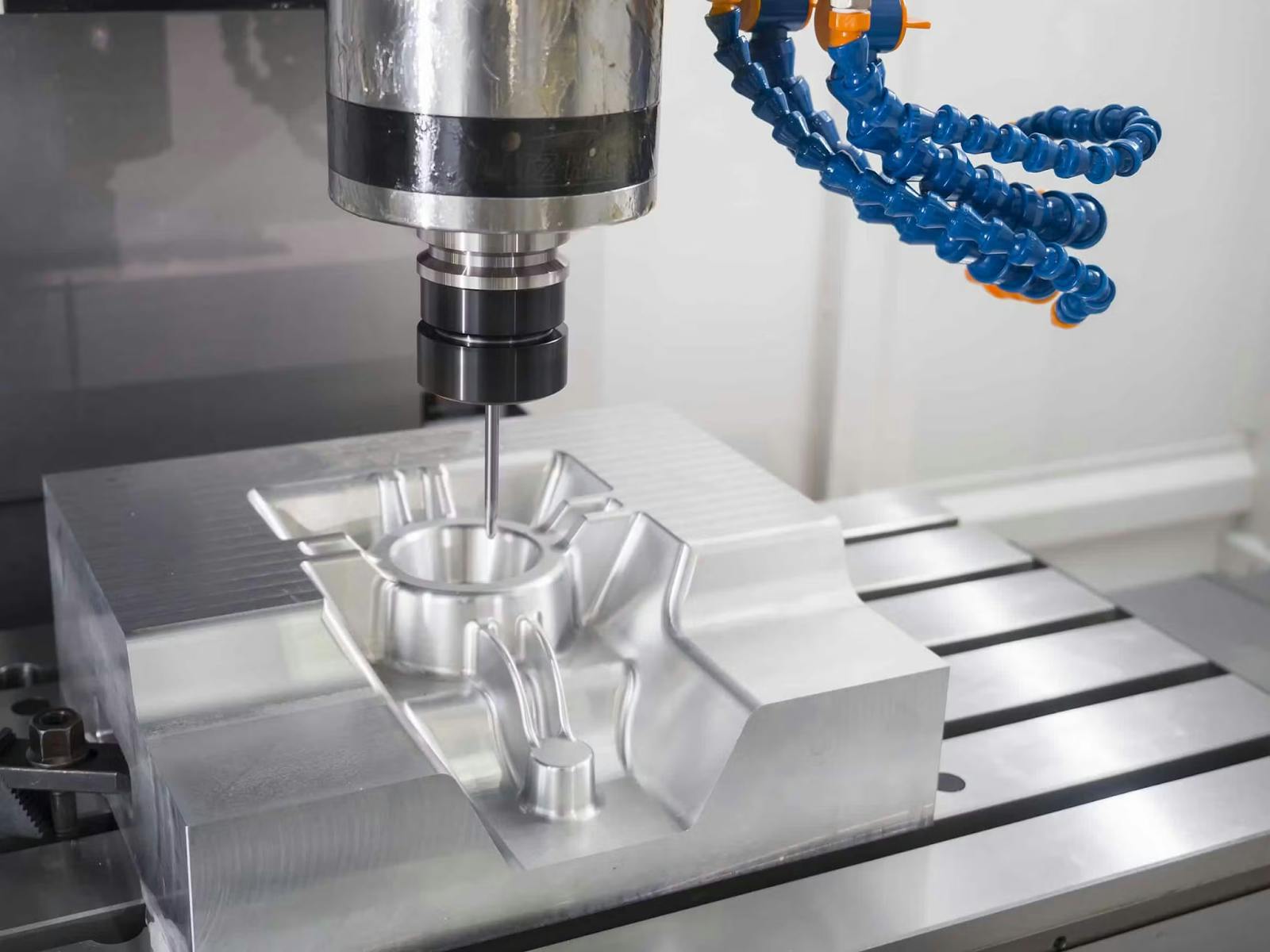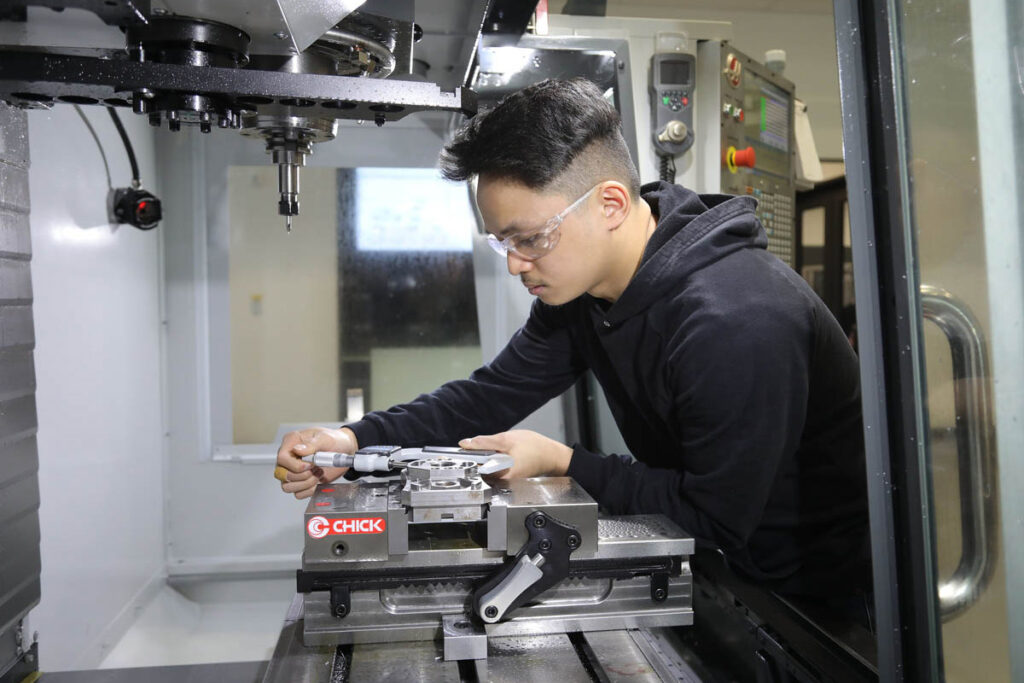Elevate Your Manufacturing Top Quality With Professional CNC Machining Solutions in Milling and Turning
CNC machining solutions in milling and transforming offer significant benefits for producing procedures. These processes assure accuracy and effectiveness, important for producing top quality components. With innovative modern technology and knowledgeable machinists, services can achieve premium surfaces and elaborate layouts. Comprehending the nuances of these solutions is essential for optimizing their benefits. What factors should companies take into consideration when picking the ideal CNC machining companion?
Recognizing CNC Machining and Its Advantages
Several making processes exist, CNC machining stands out due to its accuracy and performance. This innovative manufacturing method uses computer-controlled machines to generate complex get rid of marginal human intervention. By automating the machining procedure, it greatly reduces the likelihood of human mistake, ensuring constant top quality across production runs
CNC machining offers countless advantages that appeal to different markets. To start with, it accommodates complicated styles that typical methods may have a hard time to accomplish. In addition, the speed of production is improved, allowing for quicker turnaround times and boosted result. Additionally, CNC machining is versatile, suitable for a wide variety of products, consisting of plastics, metals, and composites.
Furthermore, the process permits very easy changes, making it possible for quick prototyping and customization without comprehensive retooling. Consequently, services can respond quickly to market demands, making CNC machining an essential component of modern manufacturing strategies.

The Relevance of Precision in Milling Processes
Precision is essential in milling procedures, as it straight influences the precision of the end product. The choice of products also plays a substantial function, affecting just how well the machining procedure meets defined resistance standards. Recognizing these elements is necessary for achieving suitable results in CNC machining.
Function of Precision
Achieving high levels of precision is crucial in grating procedures, as even the smallest discrepancy can bring about significant errors in the last item. Accuracy in CNC machining straight influences the performance, performance, and long life of the manufactured elements. Exact crushing assurances that tolerances and dimensions are fulfilled, which is important for components that must mesh seamlessly in assembly or run under certain problems. Furthermore, the role of accuracy expands to reducing waste and rework, thus boosting total manufacturing efficiency. Advanced CNC makers outfitted with sophisticated software and tooling add to achieving the needed precision. By prioritizing precision in milling, manufacturers can ensure top quality results that meet rigid sector standards and customer assumptions.

Product Choice Influence
Product selection plays a critical function in the milling process, influencing both the quality of the end product and the performance of production. Different materials display special homes such as hardness, tensile toughness, and machinability, which straight impact the milling technique employed. As an example, harder materials might need customized devices and slower feed rates to stop device wear and preserve accuracy. Conversely, softer materials can be grated at greater speeds however may do not have toughness. Furthermore, the choice of material can influence surface finish and dimensional precision, demanding careful factor to consider by suppliers. Eventually, selecting the ideal product not just improves product performance yet additionally maximizes the milling procedure, decreasing waste and improving overall productivity.
Resistance Requirements Relevance
While the option of products is necessary, adherence to resistance requirements is similarly crucial in CNC machining processes. Tolerance requirements determine the permissible restrictions of variant in dimensions, making sure elements fit and operate properly. In milling and turning procedures, precise tolerances boost item top quality, minimize waste, and minimize rework. When resistances are precisely kept, manufacturers can accomplish constant outcomes, which is vital for industries such as aerospace, automotive, and clinical devices, where precision is extremely important. Deviations from developed requirements can result in setting up concerns, compromised efficiency, and enhanced costs. Subsequently, understanding and implementing correct tolerance criteria is essential for any CNC machining solution looking for to preserve high production high quality and meet customer specs effectively.
Enhancing Efficiency Via Advanced CNC Turning
Advanced CNC transforming strategies substantially improve performance in component development by making sure high accuracy in manufacturing. This raised precision not just enhances the general high quality of the parts generated yet additionally contributes to decreased manufacturing time. As an outcome, producers can achieve better result while keeping rigid high quality standards.
Precision in Element Production
CNC turning modern technology has reinvented accuracy in component production, making it possible for manufacturers to achieve outstanding precision and effectiveness. Utilizing computer-controlled lathes, this sophisticated process thoroughly shapes materials into detailed layouts, making certain tight tolerances that meet demanding specifications. The automation inherent in CNC turning reduces human mistake, causing regularly top quality elements tailored to certain needs. Additionally, the capacity to swiftly customize electronic layouts permits for quick models, boosting the modification of components without giving up accuracy. As an outcome, sectors varying from aerospace to automotive advantage greatly from these advancements, as they can produce complex geometries with ease. Ultimately, CNC transforming stands as a keystone of modern-day production, driving accuracy and integrity in element development.
Minimized Production Time

Secret Technologies in CNC Machining
Many try these out crucial modern technologies drive the performance and accuracy of CNC machining, making it possible for suppliers to generate intricate get rid of high precision. Central to these innovations are Computer system Helped Style (CAD) and Computer Aided Production (WEB CAM) software program, which simplify the design-to-production procedure. CAD enables elaborate designs to be developed and adjusted electronically, while webcam translates these designs right into maker directions.
Even more enhancing accuracy are multi-axis machining facilities, which allow cutting tools to move along numerous axes at the same time, decreasing the need for multiple setups - jig and fixture tooling. Additionally, advancements in tooling materials and layers have actually enhanced toughness and efficiency, allowing for better surface area finishes and expanded tool life
Automation technologies, consisting of robotics and intelligent software, promote real-time tracking and adjustments throughout production, making certain consistency and top quality. Collectively, these modern technologies not only enhance manufacturing abilities but additionally add to the general dependability of CNC machining services.
The Duty of Skilled Machinists in High Quality Manufacturing
Experienced machinists play a crucial role in making sure the quality and precision of CNC machining manufacturing. Their knowledge straight impacts the outcome of producing procedures, as they interpret technical drawings, established equipments, and select proper devices for each project. By possessing a deep understanding of machining principles, they can make real-time modifications to optimize performance and preserve limited resistances.
Moreover, proficient machinists use their problem-solving abilities to determine and remedy concerns throughout production, ensuring and preventing problems that the final products satisfy strict high quality requirements. Their familiarity with various materials and machining techniques permits them to adjust to varied job demands, improving general effectiveness
Furthermore, these specialists usually collaborate with engineers and developers, offering useful understandings that add to the constant enhancement of production methods. Ultimately, the importance of experienced machinists in CNC machining can not be overstated, as they create the foundation of dig this high-grade production operations.
Reducing Waste and Optimizing Resources
Efficient CNC machining not only depends on the knowledge of skilled machinists however additionally emphasizes the significance of lowering waste and optimizing resources throughout the production procedure. By using advanced innovations and specific programming, producers can lessen product waste, guaranteeing that every piece of resources is made use of efficiently.
Incorporating methods such as nesting, where components are arranged to optimize product use, can significantly reduce scrap manufacturing. In addition, real-time monitoring of machine performance enables instant modifications, protecting against overflow and source deficiency.
Implementing sustainable practices, such as reusing steel shavings and making use of green products, contributes to both expense savings and environmental responsibility.
Through these steps, CNC machining services can boost performance while preserving high-grade criteria, inevitably bring about a much more profitable and lasting procedure. By prioritizing source optimization, organizations can accomplish higher efficiency and a lowered ecological footprint in their production processes.
Choosing the Right CNC Machining Solution for Your Requirements
Exactly how does one determine the best CNC machining solution for certain project demands? Choosing the appropriate CNC machining solution includes several essential considerations. Job specs, consisting of material tolerances, dimensions, and kinds, should be plainly defined. This ensures that the picked service can satisfy the technological demands of the job.
Second, reviewing the company's experience and experience in the appropriate market can give insights into their capacities. Taking a look at previous projects and customer testimonials can additionally educate the choice.
Third, reviewing the available modern technology and machinery is vital, as innovative equipment typically leads to higher accuracy and efficiency.
Cost and turn-around time need to be considered to ensure the solution lines up with budgetary restraints and deadlines. By carefully assessing these variables, companies can recognize the CNC machining service that ideal fits their one-of-a-kind manufacturing demands.
Often Asked Concerns
What Materials Can Be Used in CNC Machining?
CNC machining can utilize a variety of products consisting of steels like titanium, steel, and aluminum, as well as plastics such as acrylic and nylon, and composites, providing convenience for various manufacturing applications and industries.
Exactly how Long Does a Normal CNC Machining Task Take?
A regular CNC machining task can take anywhere from a couple of days to numerous weeks, depending on variables such as complexity, material type, layout specs, and production quantity. Timelines differ based upon project demands and seriousness.
Are CNC Machining Services Ecologically Friendly?
CNC machining solutions can be ecologically friendly, especially when using effective procedures and lasting materials. Waste reduction and energy-efficient equipment add to a lower environmental influence, making these services a practical alternative for eco-conscious production.
What Industries Commonly Utilize CNC Machining Services?
CNC machining solutions are typically made use of in different sectors, including auto, aerospace, electronics, clinical gadgets, and production. These industries count on precision machining for elements that call for high precision, performance, and repeatability in production procedures.
How Can I Prepare My Styles for CNC Machining?
To prepare layouts for CNC machining, one ought to guarantee proper data layouts, optimize measurements for resistance, incorporate needed machining features, and think about product buildings. Additionally, giving comprehensive documents can boost the manufacturing process's effectiveness and precision.
While the choice of materials is crucial, adherence to resistance standards is similarly important in CNC machining procedures. Proficient machinists play an essential role in making sure the top quality and accuracy of CNC machining production. A typical CNC machining project can take anywhere from a couple of days to a number of weeks, depending on variables such as intricacy, product kind, layout specifications, and production volume. CNC machining services read here can be ecologically friendly, particularly when using reliable procedures and lasting materials. To prepare styles for CNC machining, one ought to ensure correct data layouts, maximize measurements for tolerance, integrate required machining features, and think about material buildings.